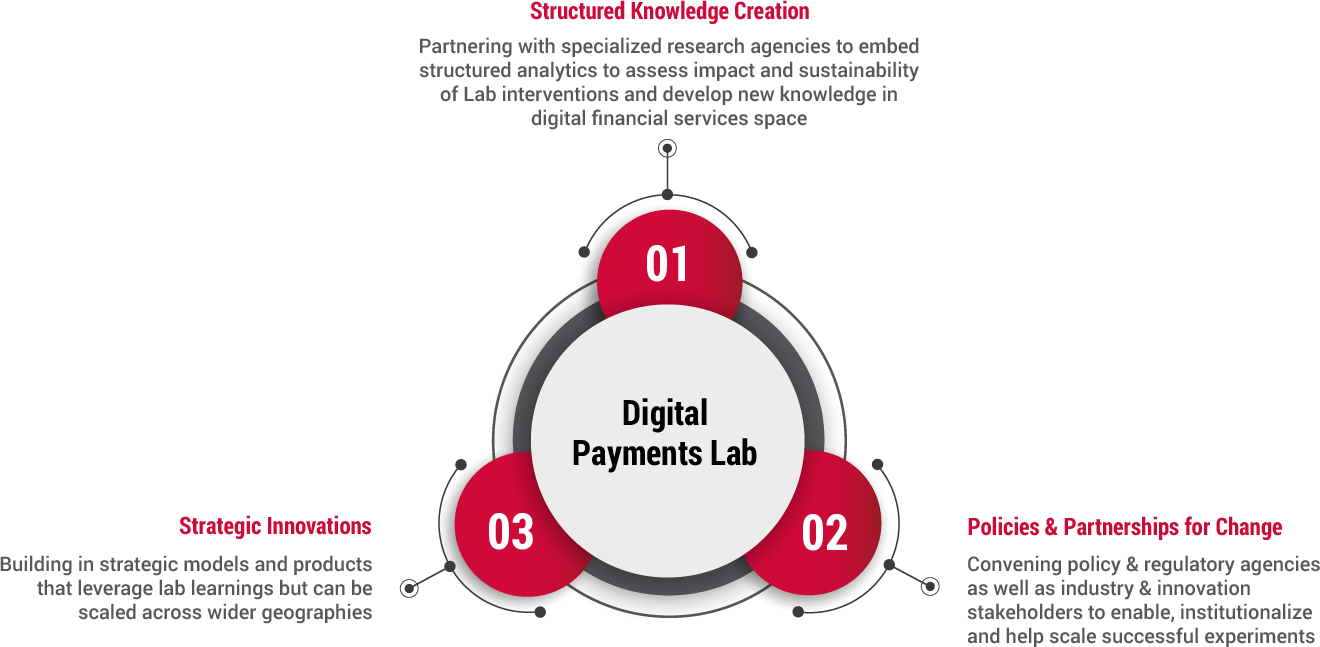Catalyst FINposium 10
Event: Developing Business Models for Mass Digital Payments in India
Date: August 8th, 2018
Location: Grand Hyatt, Santacruz (East), Mumbai, India
INTRODUCTION
Catalyst organized a day-long FINposium, titled, ‘Developing Business Models for Mass Digital Payments in India’, in Mumbai on August 8th, 2018. The discussions aimed at identifying new potential strategies to deepen digital payments acceptance and financial inclusion in the small business segment. It brought together key stakeholders from diverse industries, including financial and digital service providers, fintech companies, banks, supply chain players, and industry aggregators.
The workshop witnessed the launch of Catalyst and PRICE’s joint research titled, ‘Mapping the Merchant’s Mind – An Analysis of Digital Payment Behaviors by Fixed Store Merchants in Jaipur’.
OBJECTIVES
- Discuss learnings from the ground and identify potential ecosystem strategies to deepen digital payments acceptance and financial inclusion
- Learn and offer new insights that can be used by practitioners to design meaningful value propositions for small businesses
- Share stream of action learnings from Catalyst’s ongoing operational activities in its Digital Payments Lab and Fintech for the Last Mile incubator program, and
- Highlight insights based on the joint research conducted by Catalyst and People Research on India’s Consumer Economy (PRICE)
PANEL DISCUSSION
Digitizing merchant payments in India: Opportunities and strategies to promote adoption
Moderator : Rama Bijapurkar, Chairperson, PRICE
The power-packed panel clearly highlighted what has been tried, what worked, what did not, and further focused on discussing the following – assessing the nature of the opportunity for solution providers and the last mile audience, challenges and insights into the problems, solutions, strategies for the future, and ‘must-have’ enablers.
The discussions focused on opportunities for ecosystem players to develop innovative solutions and business models, understanding challenges in taking these strategies to the market, answering the key question for merchants (what’s in it for me?), and considerations for future actions.
KEY INSIGHTS
- The inevitable role of technology breakthroughs – Taking technology to potential users to build business out of it and add value for customers and businesses
- Credit as a hook and collections are key drivers – For adoption and acceptance of digital payment solutions among micro and small merchants across the ecosystem – suppliers, distributors and retailers
- Digital and physical access to services and solutions - Both are important drivers in reaching out to potential users for universal inclusion
- Challenge of building digital payments acceptance at scale in India – To get a meaningful number of users beyond aspiration i.e.to include everyone to make digital financial inclusion a reality
- Innovation is key to building strategies to reach the last mile audience – It is vital to build deeper context on small business profiles, needs, behaviors, and perceptions before a solution or a service is introduced for its acceptance and adoption and
- Are merchants making more money? What’s in it for merchants? – These are few questions that digital payment solution providers should be able to answer to get the micro, medium, and small merchants on board
ALL ABOUT CONTEXT: Urban and Rural Use Cases
While a confluence of government and industry initiatives have increased non-cash payments, this has been confined mostly to peer-to-peer use cases. The discussions here focused on deliberating some evidence-based approaches to digitize mass payments. This session showcased learnings from emerging business models and use cases on payments digitization and financial inclusion across urban and rural areas.
RESOURCES
The session further captured delegates’ brainstorm on key challenges in operationalizing digital payment business models in India, keeping the use cases discussed in the previous session as reference, and identifying potential strategies to address these barriers in building digital payments acceptance at scale.
The workshop concluded with deliberations on challenges and opportunities for ecosystem players to develop innovative and needs-based payment solutions and business models for the ‘last mile’ consumers and merchant – how they interact with financial tools, what are their barriers, and what are the value propositions that induce them to transact digitally.


